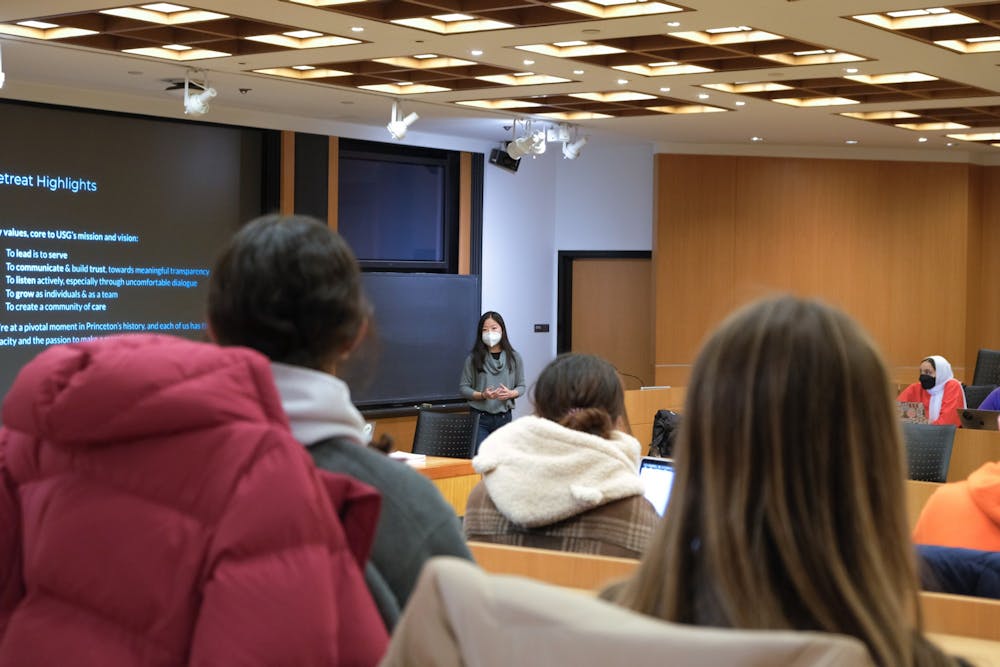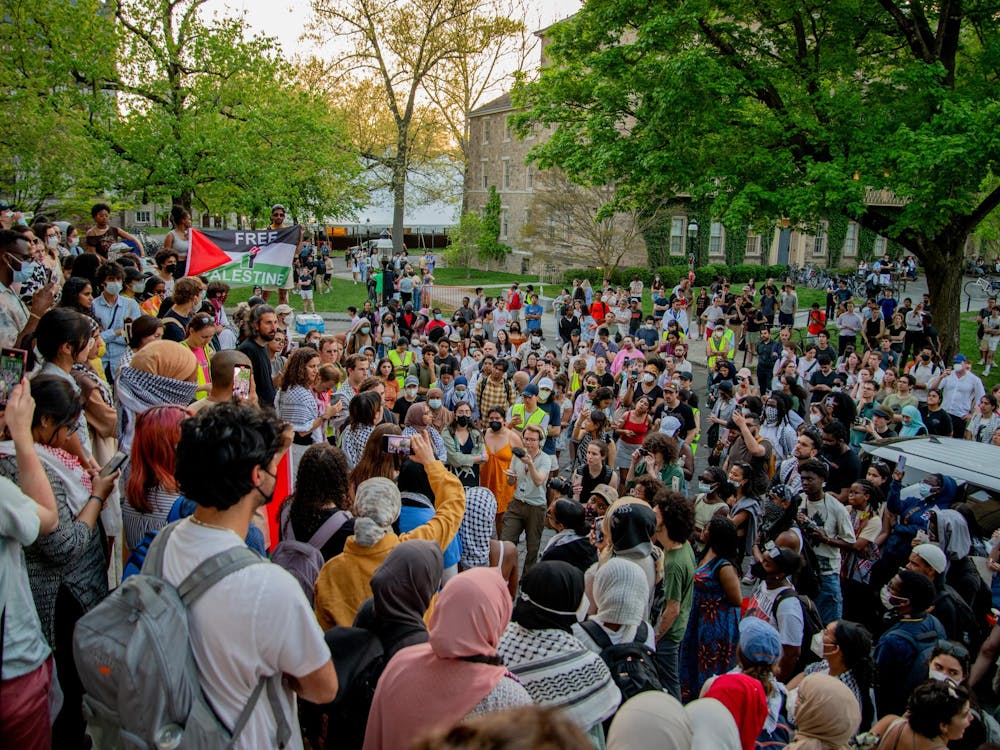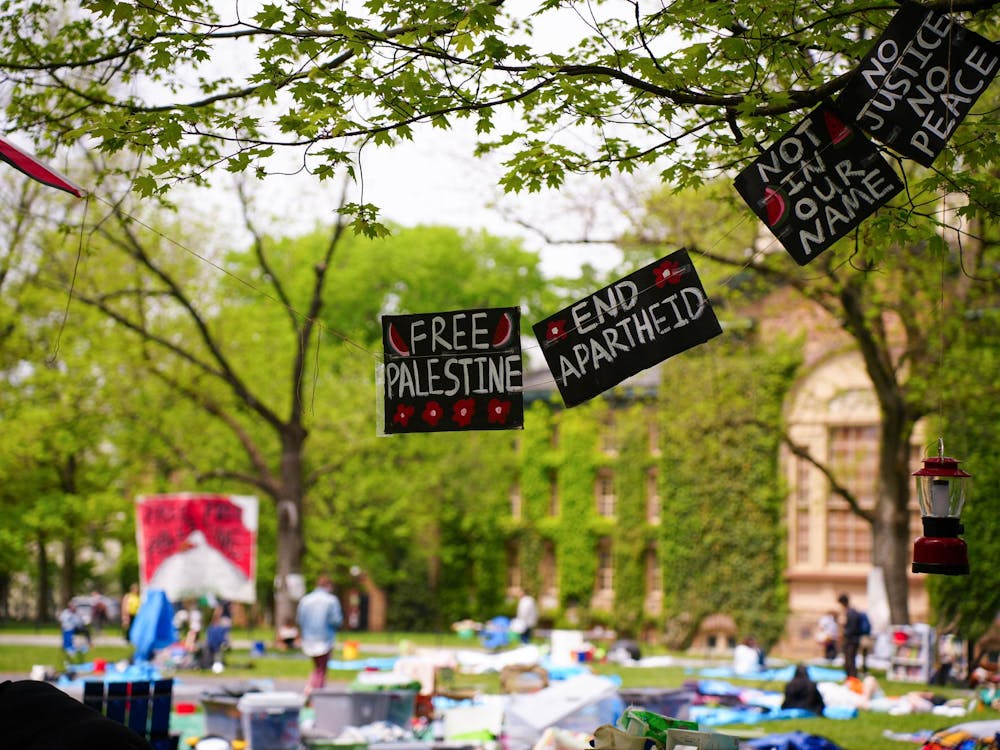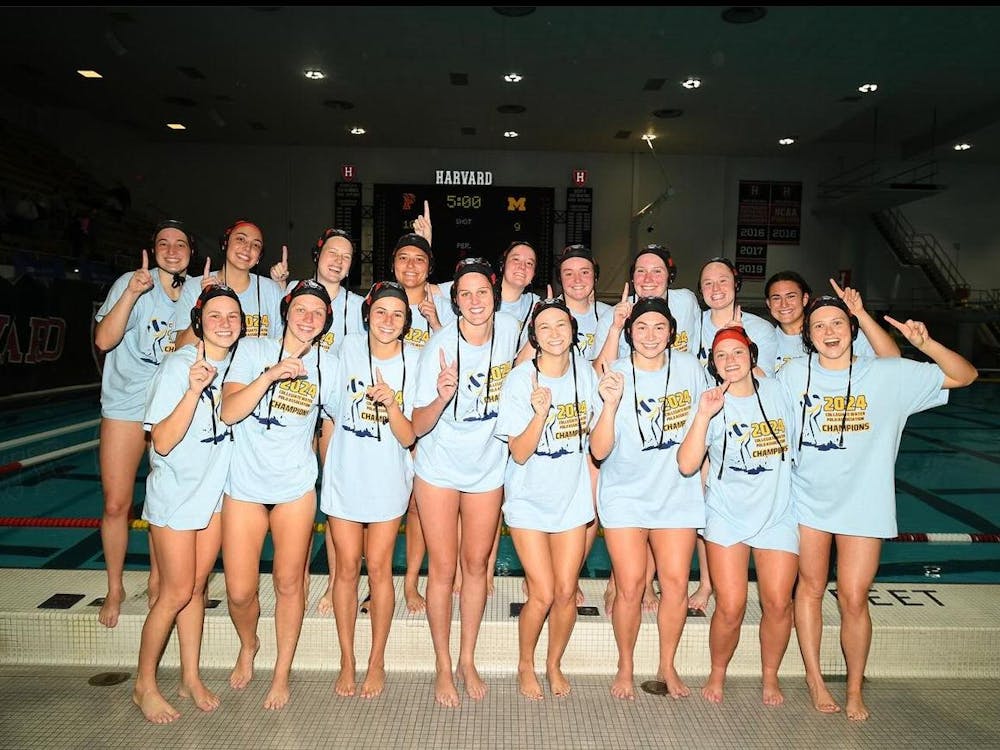In the Undergraduate Student Government (USG) meeting on Sunday, April 10, the Senate heard updates from Associate Dean of the College Rebekah Peeples and Academics Chair Austin Davis ’23 on the subject of academic minors, as well as from Associate Dean for Diversity and Inclusion Tennille Haynes on the Black & LGBTQIA Student Experience Implementation Committee.
USG President Mayu Takeuchi ’23 opened the meeting with her President’s Report, focusing on the ongoing election process and emphasizing that the Senate should work to achieve the goal of 100 percent voter turnout by the end of the voting period, which began at 12 p.m. on Monday, April 11, and closes at 12 p.m. on Wednesday, April 13.
Takeuchi noted that the Caterpillar referendum on this cycle’s ballot is the first referendum in USG history with a formal opposition group. In accordance with the USG Senate Constitution, the sponsor and opposition group were offered the chance to debate, but the sponsor declined.
Following Takeuchi’s remarks, Peeples and Davis discussed the progress of the Academic Committee's initiative to implement academic minors. Davis began by describing the motivation for the minors program and clarifying how minors would differ from the pre-existing certificate programs offered by the University.
“There’s tons of interest in a history minor, or a religion minor, which are traditionally not available because certificates are currently imagined as interdisciplinary spaces. Thus, any proposed certificates cannot be housed within a department,” he said.
Davis added that “many of the departments are also really interested in having more students work with them. The history department, for example, wants to see engineers in their classes and participating in a structured program of study.”
He also mentioned that "certificates are not legible to the outside world while a minor would be much more familiar.”
Peeples elaborated on the logistics of the initiative, explaining that it would be shaped by departmental initiative. She also elucidated how minors would function in tandem with certificates.
“The general framework for this program is that any department can propose a minor but no department will be required to do so. We also imagine that the current certificate programs would pretty simply just be reorganized as minors.”
The proposal for minors will be voted on by faculty later this month, and, if approved, will officially become part of the University’s undergraduate curriculum. Davis described a gradual implementation process, whereby departments and academic programs will begin to propose minors over the course of the next academic year, and students will officially be able to declare minors beginning in the 2023–2024 academic year. This means that the Class of 2025 will be the first to have the option to elect minors.
Peeples concluded the presentation by emphasizing that the minors program is not intended to add additional requirements or hurdles for students to complete. Rather, it is meant to provide students with more options to more formally explore additional academic interests beyond their primary concentrations. She stated that undergraduates are “not compelled to get a minor.”
USG also heard a report on the work of the Black & LGBTQIA Student Experience Implementation Committee which was established this past fall. Haynes described the history of the committee, which comprises two working groups each focused on a community within the student body that the University has found to have “very different experience[s] than their peers on campus.”

This team, which includes partners in the undergraduate and graduate spheres, has been charged with implementing recommendations to improve these groups’ experiences.
Initial goals for the team also included creating a Student Advisory Committee and “promot[ing] ongoing conversations about social justice, identity, equity, and inclusion.”
While the implementation committee originally planned to work within a two-year timeline, Haynes noted that it will likely continue for at least three years.
So far, the committee has discussed campus climate and its effects on students’ sense of belonging, as well as phenomena like “racial battle fatigue,” feelings of invisibility, and stereotype threat.
“The numbers indicated about 20 percent of Black students fall into the moderate-severe range of general anxiety in spaces where they don't feel like they belong, and one of the highest scores come from Black female students who reported higher levels of stress than their Black male counterparts as well,” Haynes said.
She noted “ongoing distrust of faculty” by LGBTQ+ students and worries around safety, especially related to gendered bathrooms.
Additionally, the committee found that undergraduate students entering Princeton from a private high school or graduate students coming from an Ivy League undergraduate background tended to have better experiences and higher “social capital.”
She noted that the team is working to address concerns in four implementation areas: “organizational transparency, institutional policies and practices, anti-racism policy and institutional restructuring, and college-wide DEI onboarding/programming.”
Haynes praised the “progressive and aggressive” efforts of eating clubs on matters of diversity, equity, and inclusion. She emphasized continuing partnerships with the clubs, as well as the Gender and Sexuality Resource Center and the University’s international programs.
The Student Advisory Committee will be established this upcoming fall, and the implementation team is also considering a recommendation to start a Multicultural Student Council. Haynes emphasized that their first year of work has mostly been focused on information gathering and that it takes time to determine whether implemented changes are working effectively.
Campus and Community Affairs Committee (CCA) Chair Isabella Shutt ’24 also presented an update on her committee’s work. Shutt described the success of Tigers in Town events throughout the semester and shared her plans to host a few more throughout the remainder of the semester, allotting larger budgets for less frequent events to allow more students to participate.
“We want to focus more towards the end of the semester on fewer events with more slots available because we know that students really want free food,” Shutt said. “So now, we just want to try to make sure that students who are there every Wednesday night, ready to get a slot, get a spot,” she added.
Shutt highlighted the Tigers at the Market event on Wednesday, April, 13 where students will be able to pick up an $8 coupon to spend at the Princeton University Farmer’s Market. She also discussed the Arts Council of Princeton’s Piano Project, which has placed pianos decorated by local artists and community groups around Princeton, as well as PorchFest, which will showcase student performances from the front porches of homes throughout Princeton on April 23.
The Senate also unanimously confirmed Melissa Chun ’24 and Lily Gittoes ’24 as Projects Board Co-Chairs and unanimously approved funding requests for the Korean Students Association’s annual spring banquet, a Muslim Students Organization fast-a-thon, and a Pride Alliance drag show fundraiser. This leaves approximately $10,000 left in the Projects Board budget.
USG Senate meetings are held in Robertson Hall Bowl 016 at 8 p.m. on Sunday evenings and are open to all. Next week’s meeting on Sunday, April 17 falls on Easter and has therefore been labeled as optional.
Alison Araten is a news staff writer for the ‘Prince.’ She can be reached at aaraten@princeton.edu and @alisonaraten on Instagram.
Annie Rupertus is a first-year from Philadelphia and a News Staff Writer who covers USG for the ‘Prince.’ She is also a designer for the print issue. She can be reached at arupertus@princeton.edu or @annierupertus on Instagram and Twitter.









